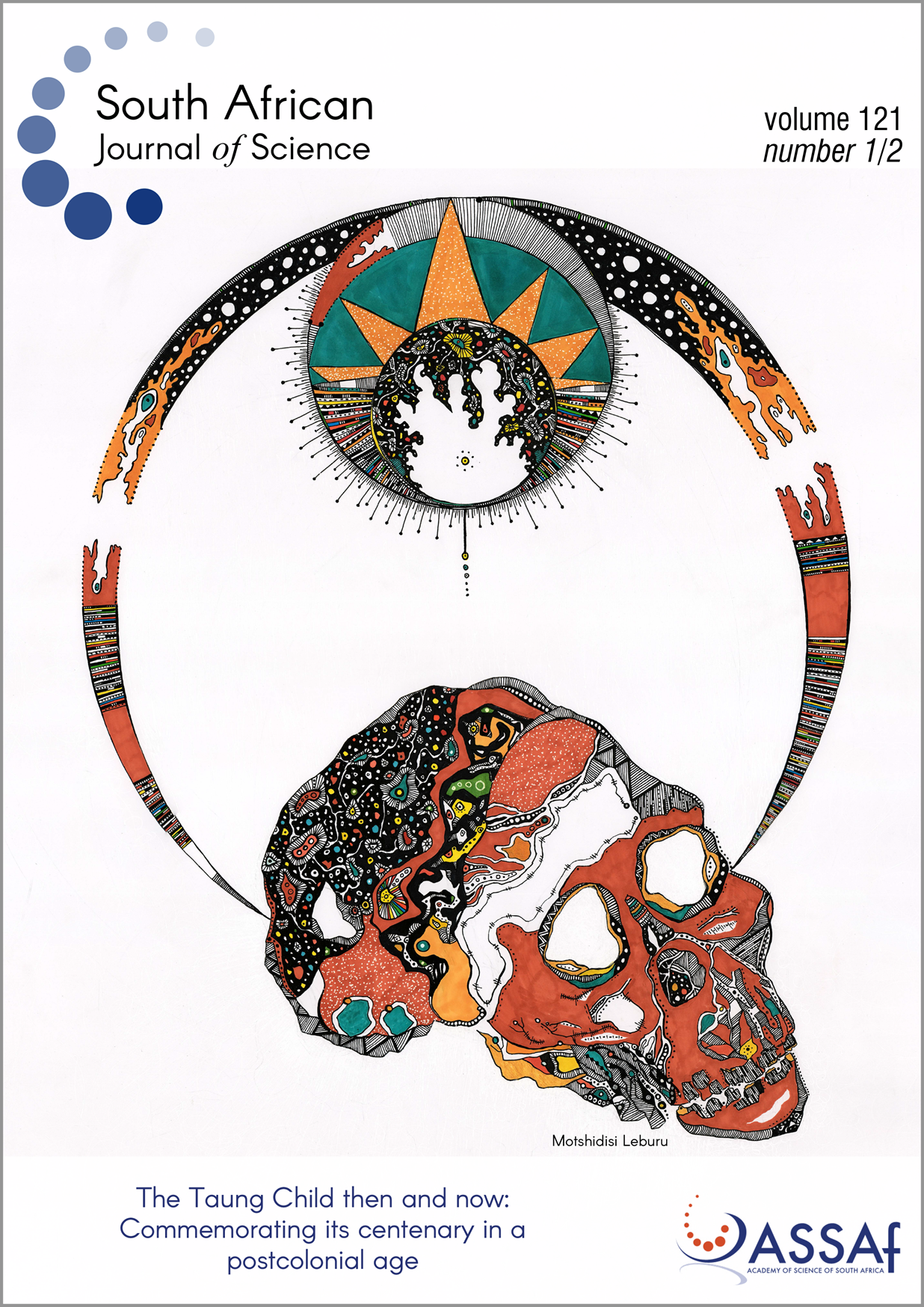Unpacking the ‘explorer’ narrative and its impacts on African palaeoanthropology
DOI:
https://doi.org/10.17159/sajs.2025/18572Keywords:
exploration, hero myth, Dart, Taung, colonialismAbstract
The concepts of explorer, expedition, and the combination of the two into the myth of the explorer have been integral parts of Western mentality for more than 200 years. Here we briefly outline the colonial origins of these ideas, and use this crystallised understanding of the explorer myth to consider how African palaeoanthropology in the 20th century and up to the present continues to carry many of these biased, outdated overtones – some more overtly than others. We examine how Raymond Dart and the discovery of the Taung Child were situated and storied within this explorer narrative. We also expand on how these outdated concepts persist in determining which scientific approaches and outcomes are valued and which are not, which in turn has perpetuated extractive approaches to palaeoanthropology and the marginalisation of Indigenous scientists. This is especially notable in fieldwork practices which, to this day, embody the explorer myth’s deeply problematic colonial ideals of Western, masculine moral and cultural superiority. By understanding the mindset behind the discovery and reporting of Dart’s work on the Taung Child, we can better understand why it still holds such sway in palaeoanthropology today, and propose important practical and cultural disciplinary changes that will allow us to move beyond these colonial and masculine ideas in a manner that creates a more equitable future for all scholars.
Significance:
- This paper shows how palaeoanthropology has remained tied to an outdated view of the role of fielde xploration in science, since the time of Dart’s discovery.
- This is then linked to the disproportionately high number of white men working across Africa who have achieved professional success under this rubric.
- We provide suggestions on how and why the discipline should shift away from glorifying ‘explorer’ science, and towards the work of local African scholars, be it in the laboratory or the field.
- This paper thus contributes to greater awareness of scientific biases, their historical origins, and opportunities for correction.
Downloads
Published
Issue
Section
License

All articles are published under a Creative Commons Attribution 4.0 International Licence
Copyright is retained by the authors. Readers are welcome to reproduce, share and adapt the content without permission provided the source is attributed.
Disclaimer: The publisher and editors accept no responsibility for statements made by the authors
How to Cite
- Abstract 528
- PDF 385
- EPUB 160
- XML 129
- Peer review history 119
- Abstract in Setswana 266
Funding data
-
National Research Foundation
Grant numbers 136512












.png)